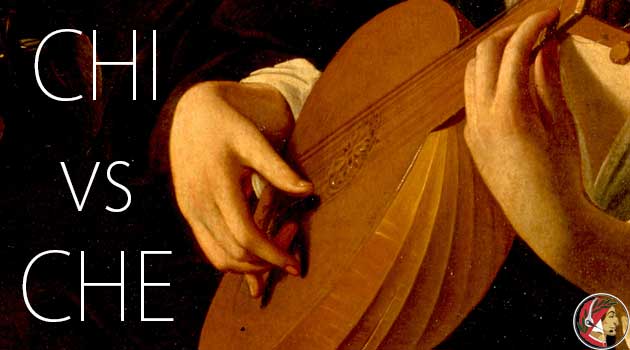Chi and Che are very important, at times confusing, Italian words. Solve the quiz at the bottom of the blog
In my last quiz about relative pronouns, I wrote the following sentence:
- Non so chi sia la persona che ha telefonato oggi.
Translating Italian into English makes things more complicated.
I repeated the quiz with my intermediate and advanced students and some got stuck on that phrase. Do chi and che both mean “who”?
As a native Italian speaker, I don’t have doubts. The sentence is correct. We can’t swap chi and che.
CHI
A very approximate translation could be “the one who”, “those who”.
1 – As demonstrative pronoun, indicates “the person who…” (as Colui/Colei che…)
- Chi ha cucinato stasera è un ottimo cuoco. (as “he who / she who”)
- C’è chi non mangia la carne. (as “those who”, singular in Italian)
2 – As indefinite, indicates “someone who…”
- Conosco chi potrebbe aiutarti.
3 – As interrogative is simply Who (?)
- Chi vuole un po’ di pane? (direct)
- Non so chi ha telefonato. (indirect)
CHE
Che is an important relative pronoun, so I’m not going through the multiple functions of this word. However, there are cases when English speakers may confuse it with Chi. In other words, of the sentences…
- Non conosco la persona che ha telefonato oggi.
- Non conosco la persona chi ha telefonato oggi.
…the first one is right. It would be something like “I don’t know the person who called today”.
If we translate it back into Italian, we would of course change who into Che (in detail, “il quale” or “la quale”), a relative pronoun, which taken as a single word is closer to “that” rather than “who”.
Matching English and Italian, in this case, is problematic.
I hope the difference is now clear. If not, solve the quiz (only one question) and grab a complimentary Skype class. A presto!
- 1
- Answered
- Review
-
1. Question
CHI vs CHE vs COSA
Seleziona le risposte corrette

